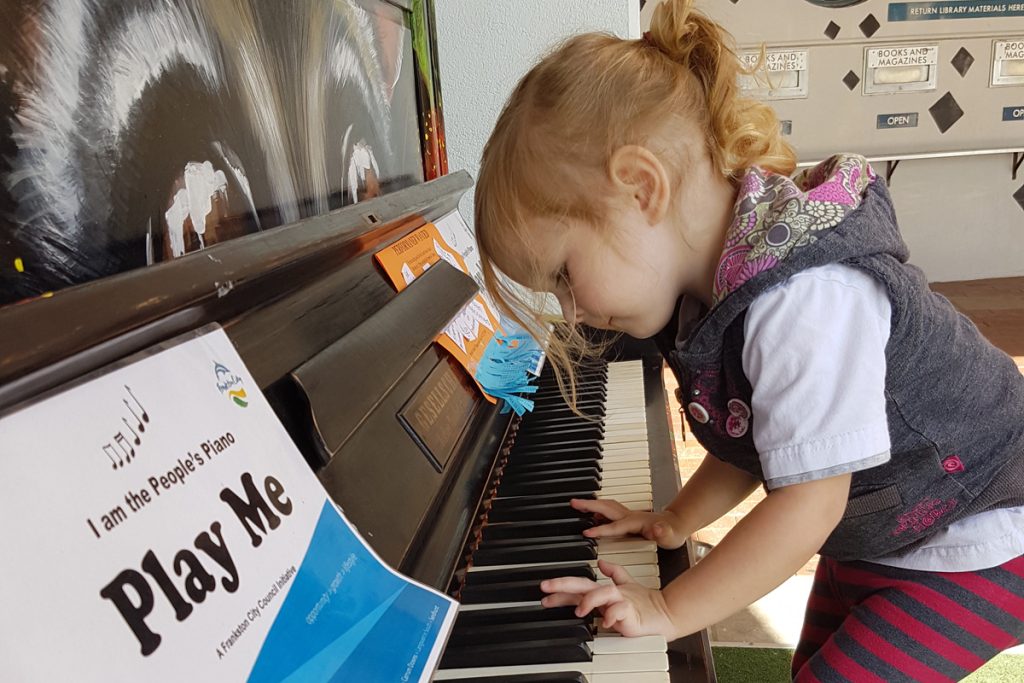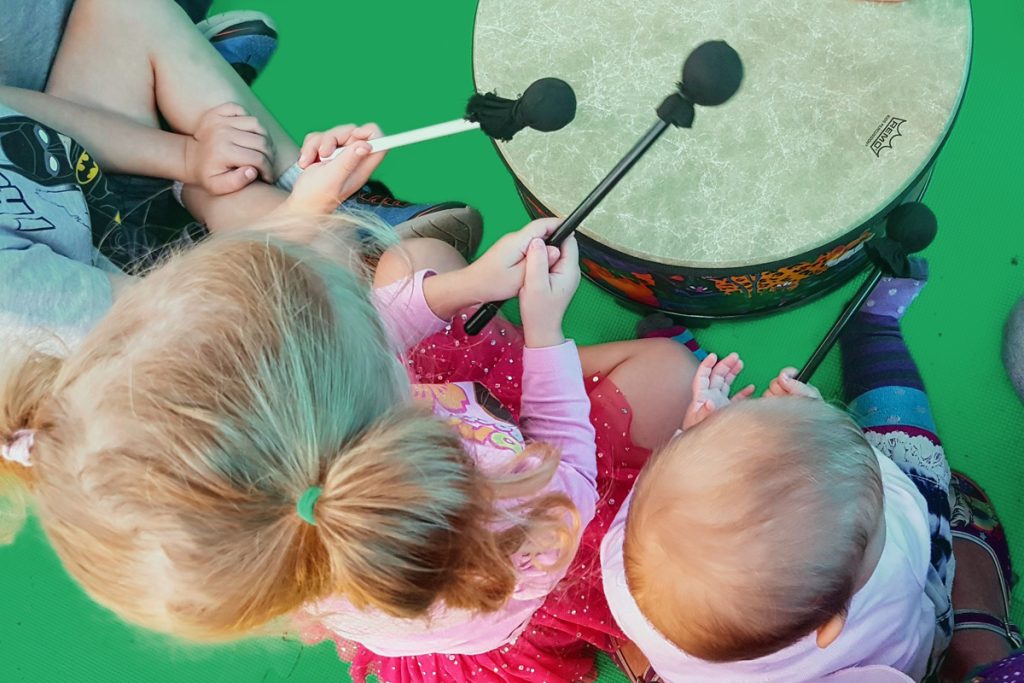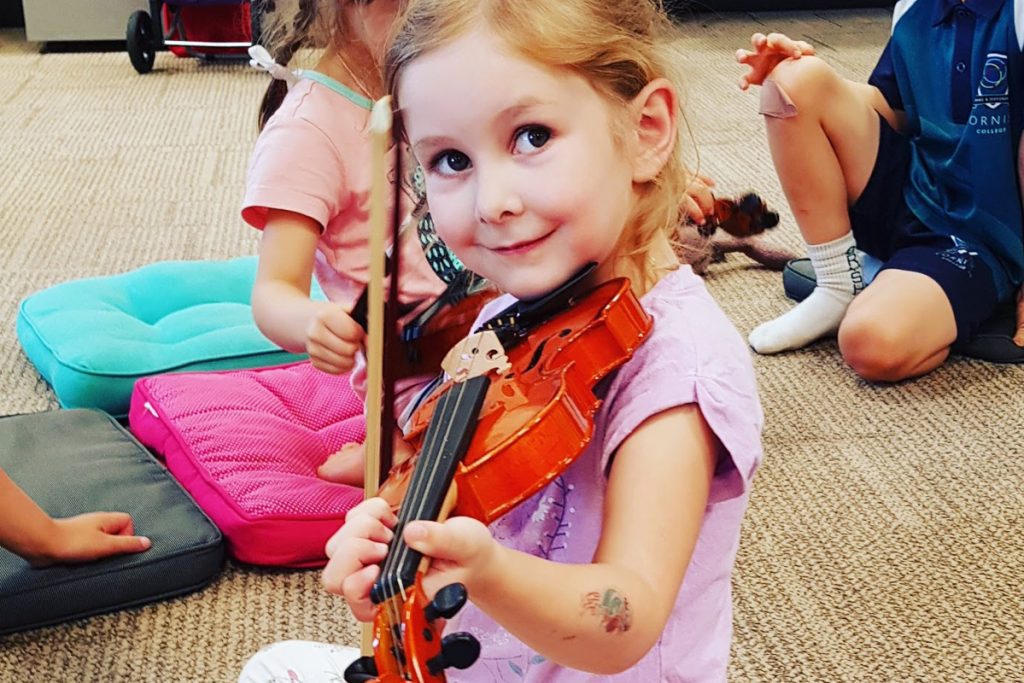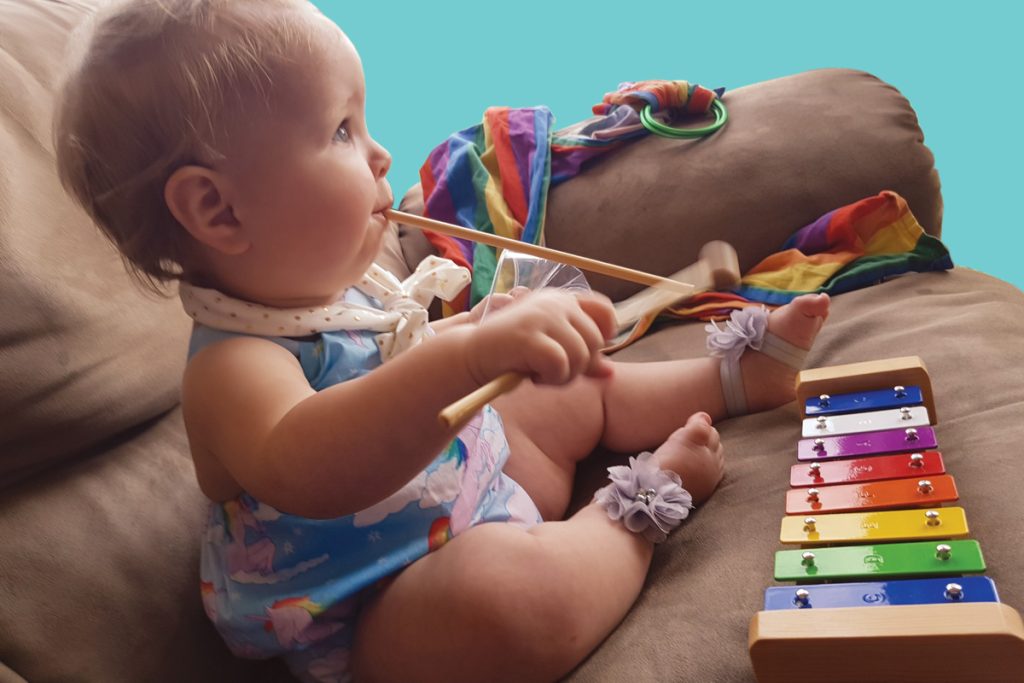By Yvette O’Dowd
Fun fact: ABC’s Playschool has amassed more than 2000 songs in their playlist after more than 50 years on air. I have pretty good recall of the lyrics for all of them, having listened endlessly as a child, a mother and grandmother! Playschool has a song for just about any moment in daily life and the songs come to mind as I go about my day – with or without children around!
Repetition is an important part of how children learn, and the combination of simple lyrics put to music is how we have taught babies and young children since prehistoric times. Every culture has a catalogue of songs passed from the old to the young, passing on oral history and teaching the life skills a child needs in everyday life.
However, modern parents are often unsure how to incorporate music into their infant’s life. Conscious of their own singing voice, many are embarrassed about singing a lullaby or struggle to remember the lyrics to familiar tunes. And when it comes to instruments for young children, how do you know what to buy amongst the noisy shelves of toy retailers?
Having grown up in a home where my father regularly played the organ – magically, without reading sheet music – I took for granted what was a rich musical environment. I exposed my own children to as wide a variety of music as possible and supported them learning an instrument in secondary school. When my first grandchild was a baby, I looked at ways to introduce her to music. The answer was found in a local children’s music session for babies.
Julie Murray runs ‘Sounds Like This’ for kids and encourages babies to participate right from the start. Some people wonder how babies would benefit from music at such a young age.
Julie explains, “Human brains love information. From before we’re even born our brains are growing and learning. And guess what?

Our brains process speech as music. This is important because once we understand that musical comprehension is fundamentally integrated into the ways our brain functions, we begin to realise its true value.
Music is not just for the talented. Music is not just something fun and frivolous; it’s part of what makes our brains intrinsically human. Valuable musical experiences and education transform the ways brains grow, for the better. The simple act of singing stimulates a diverse range of networks associated with movement, listening, planning, memory, and language. Beyond this, music has the power to increase social bonding and empathy for others as it engages the emotional networks of the brain.”
Babies don’t know or care about all this though! To them, music is fun!
You can incorporate musical play into your everyday life, and you don’t need special equipment to do so. And if you are worried about your precious baby hearing your singing voice you might be surprised to learn they have been listening to it for months before they were even born! Every-time you sing in the shower, turn up the volume and sing along to your favourite tracks in the car or gym or sing happy birthday at a party, the baby in your womb was listening in!
“Bounces, rhymes, tickles and lullabies are you and your baby’s best ticket to highly engaging and valuable musical experiences.”
Julie explains. Her classes for babies incorporate all these experiences and it is amazing how even pre-walkers soon learn the pattern and rhythm of their favourites. You can introduce songs and rhymes into your daily routine at home – not just lullabies at bedtime but songs about driving in the car, eating food, and having a bath. Your baby will soon make an association between the song and the activity and even begin to mimic your sounds and movements. Pre-verbal babies hearing a familiar tune will often become still and look intently in the direction of the sound.
Babies and toddlers don’t need expensive musical instruments.
Simple household items – like the classic wooden spoon and saucepan – will produce sound and your baby will naturally want to repeat the process. The important thing is that it is your child’s action which makes the music. Passively watching an electronic toy repeating It’s a Small World is not the same.

“Actively making music has a profound effect on children’s brains. From developing their personalities, increasing their body’s ability to move and spatially navigate, increasing their intellect and enhancing emotional intelligence. Music activates multiple areas of the brain both individually and simultaneously, like nothing else,” said Julie.
Our family has gathered a collection of miss-matched, pre-loved musical toys and instruments over the years, from second hand markets and op shops. Online marketplaces are another place to look. I asked Julie what to look for when investing in instruments for young children:
“If you fancy purchasing musical equipment for your children, I urge you to think about what will last and sound beautiful, not what’s cheap. Plastic drums are going to sound terrible, break if your child plays vigorously, and to be honest you’d be much better off just letting them go to town with the pots and pans in the kitchen cupboard.
Instead, select fewer quality instruments that are designed for children. Things they can touch, handle and experiment without breaking, that make a beautiful sound. Remo has a fabulous range of children’s percussion instruments.”
When you introduce something new to your baby, don’t feel you need to teach them how to use it. Instead, set it in front of them and let them show you what they can make it do! Its amazing to see them explore how to make different sounds. And if you have family or friends who are musical, ask them to introduce your little one to their instrument – under watchful eyes. Seeing a child hear a wind or stringed instrument for the first time can be a magical experience. Percussion instruments are especially attractive!

Look for musical experiences when you are out and about. From public pianos inviting you to play to drumming circles at community events, opportunities to share music are everywhere! And if you can share live music performances with your child, you will enrich their experience even more.
“Seek out quality musical experiences. Real bands with great musicians. See real orchestras, real street performers. Listen to many, MANY musical genres. The more the children can understand and experience the way music is made, the better,” added Julie.
Community festivals, like Ventana Fiesta held annually in Frankston, are a wonderful way to share musical cultures from around the globe. By engaging with your baby in these activities, you can bring the world to them.
Whatever way you introduce music into your baby or young child’s life – at home, in a class or out in the community – enjoy the experience with your child.
“Children bonding with their special grown-ups set the scene for the very best educational experiences, because humans are social and our brains are at their peak learning potential when we feel safe, nurtured and connected to our tribe.”
Yvette O’Dowd is not your typical grandmother! This mother of three and ‘Granny’ of three has been a breastfeeding counsellor since 1992. In 2014, Yvette established the Southern Natural Parenting Network, incorporating South Eastern Babywearing Group. With 11,000 members world-wide, the group supports parents interested in breastfeeding, babywearing, co-sleeping, baby-led weaning and modern cloth nappies and other aspects of gentle, natural parenting.


